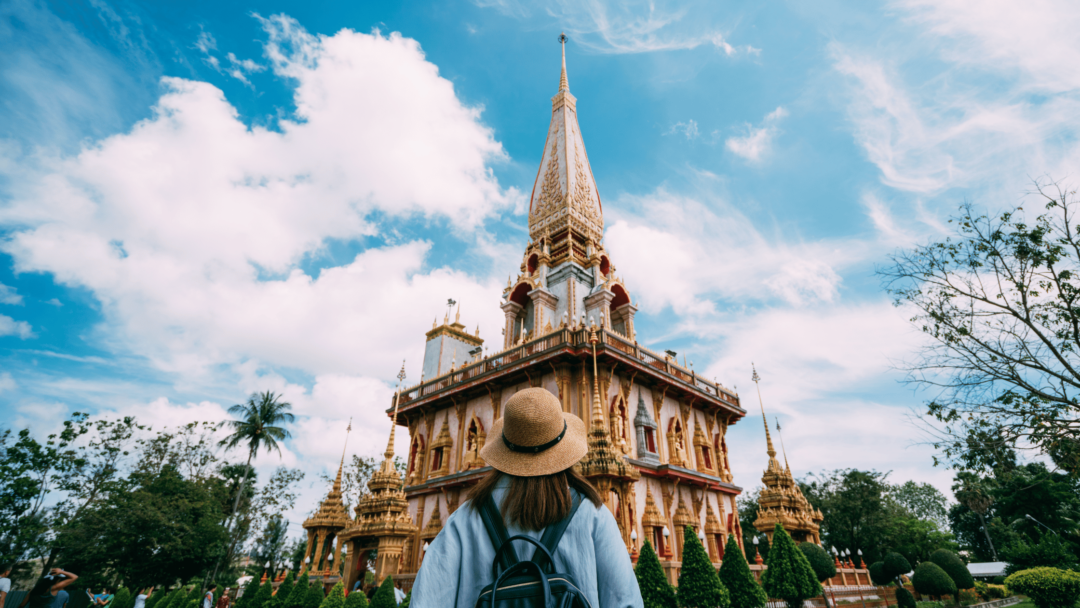Whether you’re a tourist or a local, diving into the most popular hobbies in Portugal offers a unique way to explore the country’s rich culture and history.
Portugal’s vibrant traditional practices, from Fado music to lively folk dances, provide a deep connection to its heritage.
There’s also a modern twist, with activities like surfing and hiking gaining popularity along the Atlantic coastline.

As you immerse yourself in these hobbies, you’ll find that each one tells a story of the country’s past and present.
The intricate art of azulejos—Portuguese ceramic tiles—reflects centuries of Moorish influence and colonial encounters.
Culinary enthusiasts will delight in learning how to cook traditional dishes like bacalhau, revealing the nation’s maritime history and love for seafood.
By engaging in these activities, you gain more than just enjoyment; you gain insight into the heart of Portuguese culture.
From exploring the captivating traditions highlighted on 12 Portuguese Traditions to understanding the historic Age of Exploration detailed on Portugal & the Age of Exploration, there’s no better way to truly experience Portugal.
The Cultural Tapestry of Portugal

Portugal’s rich and vibrant culture is a product of its fascinating history and diverse influences.
Key elements of this cultural tapestry include the significant impact of different civilizations, the evolution of the Portuguese language and literature, and the array of unique festivals and folk traditions.
Check out our Huge List of Food Hobbies for more awesome food and cooking-related hobby ideas!
Influence of History and Civilizations
Portugal has a deep-rooted history influenced by various civilizations, including the Romans and the Celts.
As an independent kingdom since 1143, Portugal developed its identity, significantly shaped by the Age of Discovery. During this time, explorers like Vasco da Gama expanded its reach to distant colonies such as Cape Verde.
This era left a lasting mark on the nation’s cultural landscape, blending Iberian, African, and Asian elements into a unique tapestry.
Portuguese Language and Literature
The Portuguese language, a reflection of the nation’s rich history, evolved from Latin under Roman rule and was later enriched by Moorish and other influences.
Portuguese literature boasts a strong tradition of poetry and prose. Notable figures like Luís de Camões, whose work “Os Lusíadas” celebrates the Age of Discovery.
Modern literature continues to thrive, with authors like José Saramago earning international acclaim, highlighting the language’s enduring cultural significance.
Festivals and Folklore
Portugal’s cultural vibrancy is vividly expressed through its numerous festivals and folk traditions.
The famous Fado music, characterized by its deep sense of saudade (longing), and traditional folk dances like the Vira, Fandango, and Bailarico are integral to festive celebrations.
Each region boasts unique customs and festivals, reflecting the rich diversity within Portugal. These traditions not only preserve cultural heritage but also bring communities together in joyous celebration.
To dive deeper into Portugal’s cultural events, you might explore this guide on hidden gems in Portugal.
Signature Elements of Portuguese Culture

Portugal boasts a rich cultural tapestry that encompasses eclectic culinary traditions, world-renowned beverages, and intricate craftsmanship. Each element offers a unique glimpse into the nation’s diverse and storied heritage.
Culinary Delights and Gastronomy
Portuguese cuisine is renowned for its simplicity and freshness.
Bacalhau (salted cod) is a national dish, prepared in numerous ways, with over 365 recipes, one for each day of the year.
Sardines, particularly grilled, are a staple during summer festivals. Another beloved dish is Cozido à Portuguesa, a hearty stew combining meats, sausages, and vegetables.
Key ingredients in Portuguese gastronomy include olive oil, garlic, and herbs. You will also find an array of delicious pastries, like Pastéis de Nata, a custard tart dusted with cinnamon.
Famed Portuguese Wine and Beverages
Portugal is world-famous for its wines, particularly Port wine from the Douro Valley.
This fortified wine is carefully aged and boasts a rich, robust flavor profile, perfect for pairing with desserts.
Vineyards in the Alentejo region produce full-bodied red wines, favored both locally and internationally.
Lisbon is notable for its ginginha, a sour cherry liqueur traditionally served in a small glass. Tea lovers can also enjoy Portugal’s own Gorreana Tea from the Azores, a unique blend grown in Europe’s only tea plantations.
Traditional Arts and Crafts
Portugal’s artistic legacy shines through in its traditional arts and crafts.
Ceramic tiles (azulejos), often depicting historical or floral motifs, adorn many buildings, reflecting the nation’s Moorish influences.
Ceramics and pottery from regions like the Alentejo and the Douro showcase intricate designs and skilled artistry.
Lace, embroidery, and weaving crafts are particularly notable in regions like Viana do Castelo.
The Filigree jewellery and Lenço dos Namorados (lover’s handkerchiefs) are exquisite examples of Portuguese craftsmanship, featuring love symbols and verses embroidered with delicate floral patterns. These traditional crafts are cherished for their historical value and aesthetic beauty.
Iconic Portuguese Landscapes and Destinations

Portugal offers a wealth of diverse landscapes and historical sites, from the bustling streets of Lisbon to the serene beauty of the Alentejo region.
Expect a rich blend of cultural landmarks and natural wonders, each offering unique opportunities for exploration and engagement.
Historical Monuments and Architecture
In Lisbon, you can explore the impressive Jerónimos Monastery, a stunning example of Manueline architecture. The intricate carvings and historical significance make it a must-visit.
Another key attraction in Lisbon is the Alfama district, known for its narrow, winding streets and vibrant azulejos (traditional tiles) adorning the buildings.
Travel to Sintra to see Pena Palace, a colorful and eclectic mix of styles that offers panoramic views.
Porto’s historic Ribeira district and the Church of São Francisco showcase Gothic architecture with baroque interiors.
Coimbra, home to one of the oldest universities in Europe, features the Joanina Library, a masterpiece of baroque decor.
Natural Wonders and Outdoor Activities
Portugal’s coastline is famously beautiful, particularly in the Algarve with its golden beaches and dramatic cliffs.
For hiking enthusiasts, Serra da Estrela offers challenging trails and breathtaking vistas.
The Azores and Madeira islands are perfect for nature lovers seeking volcanic landscapes, lush vegetation, and varied wildlife.
In the Sado Estuary, you can engage in dolphin watching and kayaking, while the Minho region is known for its vineyards and scenic rural areas.
The Alentejo region provides a more relaxed backdrop with rolling plains and historic villages. Each destination allows you to immerse yourself in Portugal’s natural beauty, offering activities ranging from hiking to water sports.
The Rhythm of Portuguese Music and Dance

Portuguese culture boasts a vibrant and expressive connection with music and dance. From the heartfelt melodies of Fado to the energetic movements of traditional dances like Vira and Fandango, these cultural elements offer a deep dive into Portugal’s rich heritage.
Fado: The Soulful Sound of Portugal
Fado is often described as the heart and soul of Portuguese music. Defined by its melancholic melodies, Fado embodies saudade—a deep sense of longing and nostalgia.
This traditional genre is often performed with a singer accompanied by the guitarra portuguesa (Portuguese guitar).
One of the most iconic figures in Fado is Amália Rodrigues, whose powerful voice brought international attention to this musical style.
Fado is typically heard in cozy taverns and dedicated Fado houses, especially in Lisbon and Coimbra. Its themes often explore love, loss, and the struggles of everyday life. The music itself relies heavily on the emotional delivery of the singer, making it a deeply personal and moving experience.
Dance Traditions from Vira to Fandango
Portuguese folk dances are as varied as the regions they come from.
One popular dance is Vira, which is prevalent in the northern part of Portugal. Characterized by its lively tempo and circular formations, Vira is commonly performed at festivals and celebrations, often with dancers wearing traditional costumes.
The dance steps mirror the rhythms of the accompanying folk music, making for an engaging show.
Another significant traditional dance is the Fandango, originating from the southern regions. Known for its fast footwork and rhythmic clapping, this dance draws from Moorish influence.
The Pauliteiros, a warrior dance from the Douro region, also stands out for its distinctive use of wooden sticks.
Other notable folk dances include Bailarico and Marchas. These dances are often showcased at local festivals, preserving the rich folklore and traditional values of Portugal.
The Age of Discoveries and its Legacy
In the 15th and 16th centuries, the Age of Discoveries heralded a new era of exploration driven by Portuguese navigators. Visionaries like Vasco da Gama capitalized on maritime advancements to venture beyond known territories.
In 1415, Portuguese forces captured Ceuta, marking the beginning of overseas expansion.
Portuguese explorers navigated new sea routes, creating lasting legacies.
Portugal’s colonization efforts established influential colonies in places such as Brazil and Cape Verde. These ventures introduced European culture to diverse regions, forever altering global trade and cultural interactions.
Portuguese Diaspora and Global Connections
The Portuguese Diaspora has created a worldwide network influencing various cultures.
Historical events like the establishment of colonies spread Portuguese culture globally.
Portuguese communities flourished in regions like India, Mozambique, and Angola, fostering a rich exchange of traditions and trade practices.
Musical genres such as Fado, as well as cuisine and language, are evidence of this cultural diffusion.
These global connections have deeply intertwined Portuguese history with local customs across continents, showcasing the remarkable legacy of Portugal’s explorations and settlements.
Contemporary Hobbies and Pastimes in Portugal

In Portugal, contemporary hobbies include a variety of activities that embrace the rich natural landscapes and vibrant cultural scene of the country.
Sports and Outdoor Recreation
The Portuguese coastline is perfect for water sports.
Surfing is particularly popular, with beaches like Nazaré drawing global surfers.
Hiking enthusiasts will find the scenic routes in rural areas and national parks, such as Peneda-Gerês National Park, both challenging and rewarding.
Judo and rugby are other popular pastimes.
These sports are gaining traction among locals, offering a sense of community and competition.
Outdoor activities like these allow you to experience the diverse geography, from coastal regions to mountainous trails, ensuring something for everyone seeking adventure and physical activity.
Modern Arts and Entertainment
Portugal is also home to a burgeoning arts scene.
In cities like Lisbon and Porto, you’ll find numerous galleries showcasing both contemporary and traditional art.
Exhibitions frequently change, offering fresh experiences every visit.
Cinema remains a beloved pastime.
Portuguese films are celebrated for their unique storytelling and cinematography.
Major cities host several film festivals, including the Lisbon & Sintra Film Festival, which attract international crowds.
These cultural activities enrich your understanding of Portuguese heritage while offering modern entertainment.
Engaging in these hobbies not only keeps you active but also connects you to the heart of Portuguese culture.
Getting Started with Portuguese Hobbies

To immerse yourself in Portuguese hobbies, start by exploring cultural activities and traditions.
Language
Learning basic Portuguese phrases can enhance your experience.
Whether you’re learning Portuguese online or through a local class, gaining language skills helps you connect with locals and understand cultural nuances.
Craftsmanship
Participate in traditional craftsmanship activities.
For example, try making lace, known as renda, a meticulous craft from Peniche featuring floral and geometric designs. This is a unique way to appreciate Portuguese heritage.
Nature
Engage in outdoor activities like hiking through stunning landscapes.
Portugal offers trails through lush forests and coastal paths. This not only provides physical exercise but also lets you enjoy the country’s natural beauty.
Cuisine
Experiment with Portuguese cuisine.
Cooking local dishes such as Bacalhau (salt cod) or Pastéis de Nata (custard tarts) allows you to dive into the culinary culture.
You can find recipes online and try cooking with friends or family.
Hobbies
Popular hobbies among the Portuguese include traveling and various outdoor activities, according to Statista.
Engaging in these can help you understand local preferences and join community groups.
Experience traditional dress at local festivals or events.
Traditional Portuguese attire reflects centuries of history and cultural exchange. Witnessing people in traditional clothing adds another layer of understanding to your cultural journey.
Below is a simple overview to get started:
| Activities | Examples |
|---|---|
| Language | Online courses, local classes |
| Craftsmanship | Lace-making, embroidery |
| Nature | Hiking, coastal walks |
| Cuisine | Cooking local dishes, food tours |
| Cultural Activities | Festivals, traditional dress |
Frequently Asked Questions

Discover the vibrant hobbies and traditions that are popular in Portugal, including culinary delights, festive celebrations, and the cultural influence of history.
What traditional activities are commonly enjoyed by the Portuguese people?
The Portuguese often engage in activities like Fado music. This soulful genre holds a special place in Lisbon’s cultural scene.
Additionally, many enjoy traditional dances such as the Vira and the Chula. These dances are often accompanied by lively festivals that showcase Portugal’s rich heritage.
What are some popular food-related hobbies in Portugal?
In Portugal, food is a significant part of life.
Canning and preserving fish, particularly sardines, is a cherished activity.
Additionally, baking traditional pastries like Pastéis de Nata is popular.
Wine tasting and vineyard tours often captivate visitors and locals alike, especially in regions like the Douro Valley.
Which celebrations and festivities are integral to Portuguese traditions?
Celebrations such as the Festa de São João in Porto and the Lisbon Sardine Festival are beloved national events.
These festivals feature parades, live music, and street food. Many Portuguese also partake in the Carnival festivities, characterized by vibrant costumes and elaborate floats.
How do historical events influence leisure pursuits in Portugal today?
Portugal’s history as a seafaring nation deeply influences its hobbies.
Maritime traditions are celebrated through activities like sailing and fishing. Historical reenactments of the Age of Discoveries, where Portuguese explorers charted new territories, also remain popular at cultural events and museums.
What are some unique aspects of Portuguese clothing culture?
Traditional Portuguese clothing includes garments like the “Traje dos Pauliteiros,” which is worn during folk dances. Women often wear vibrant skirts paired with embroidered blouses.
Additionally, the “Capote e Capelo,” a distinct hooded cloak, is still seen in some rural areas, representing Portugal’s deep-rooted sartorial heritage.
Can you list some traditional Portuguese beliefs and values that impact their choice of hobbies?
Family and community play a central role in Portuguese life. This emphasis means social activities, like communal dining and local festivals, are highly valued.
Religious traditions also influence hobbies. Many people participate in festivities tied to Catholic saints and religious observances, reflecting Portugal’s strong spiritual heritage.





